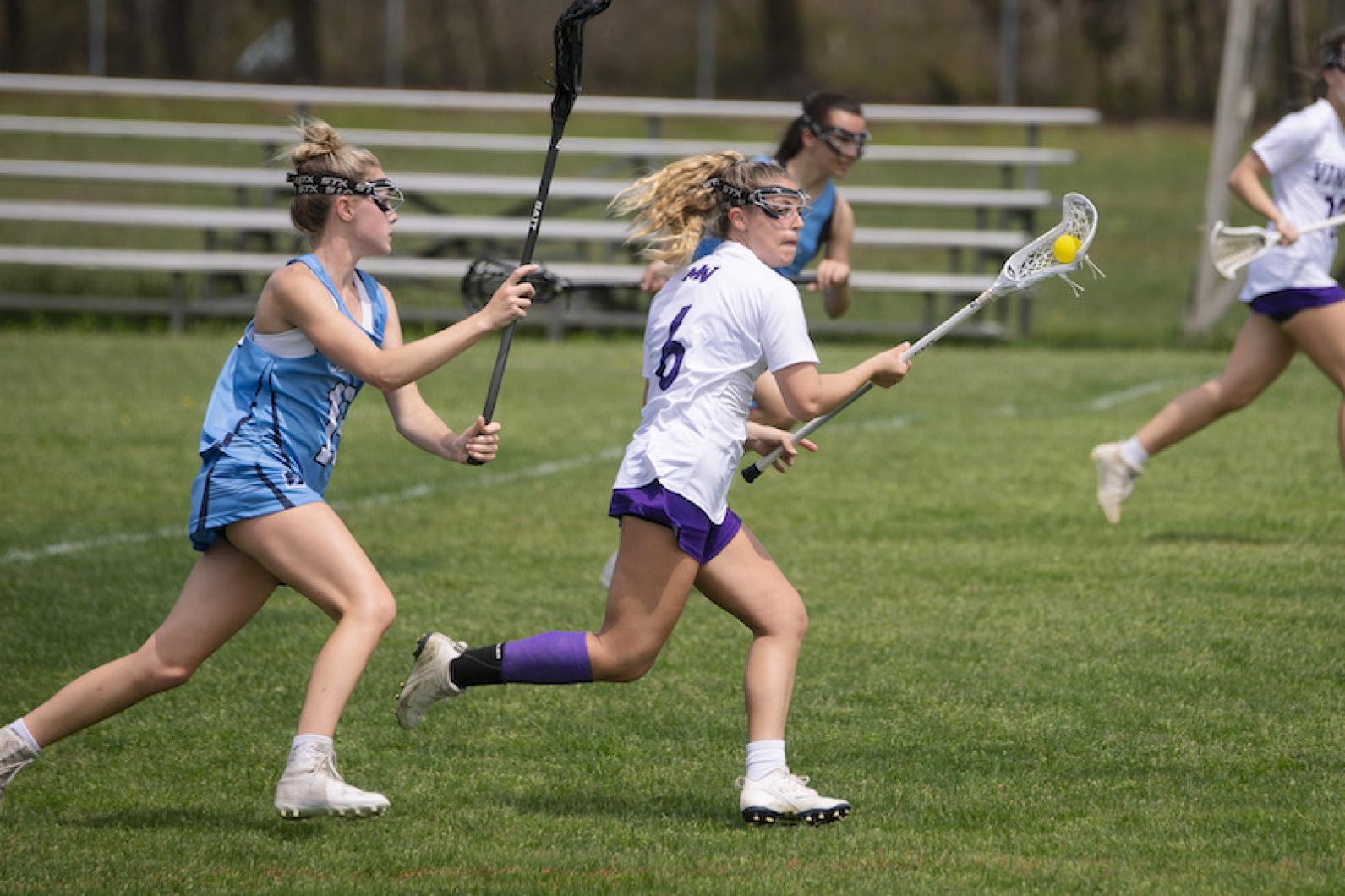With a $7 million overhaul of the high school athletic fields now stalled, the Martha’s Vineyard Regional High School district committee is set to meet Monday to decide the next steps, including the possibility of taking legal action against the Oak Bluffs planning board.
The planning board voted two weeks ago to deny a special permit for the fields project, capping months of bitter debate over the plan to use artificial turf on the main playing field.
A 32-page decision issued by the planning board this week lays out detailed concerns about the potentially hazardous use of PFAS chemicals in the town’s water resource protection area.
At an online meeting Tuesday the high school committee began to weigh its options.
“We’re a little bit at a crossroads,” committee chairman Amy Houghton said.
The planning board denial leaves the school district with three potential courses of action, she told the committee.
The district can appeal the decision in court, or wait two years to apply with the same project again, she said.
The third possibility would be to re-apply with a material change to the project, Ms. Houghton said. An amended application would require the approval of the Oak Bluffs zoning board of appeals before coming before the planning board for a vote, she said.
Committee member Kris O’Brien noted that any amendment would send the project back to the Martha’s Vineyard Commission, which approved the fields project last summer, for further review as well.
“Cheaper than an appeal,” said committee member Skipper Manter.
The school district has already spent legal monies on the long-running project. Asked by committee Robert Lionette later in the meeting for an accounting, finance director Mark Friedman said the amount was $37,900 as of January.
“There’s probably been a little bit more since then, exactly how much I can’t say, but my guess would be probably in the few thousand dollars if I had to speculate. That’s the accounting that we had at the end of January,” Mr. Friedman said
A motion by Mr. Lionette to re-apply to the planning board, with the material change of grass instead of turf, was voted down, with only Ms. Houghton and Skipper Manter joining him in favor and Roxanne Ackerman abstaining.
Instead, on a motion by Ms. O’Brien, the majority of committee members voted to continue the discussion with legal counsel in executive session.
That meeting has been set for Monday beginning at 6:30 p.m. over Zoom. The committee is scheduled to vote to go into exceutive session first, to discuss “strategies for litigation involving track and field,” according to the posted agenda. An open session will follow, with further discussion on the track and field project.
The stalled fields project comes as the regional high school, which serves the six Island towns, is at its own crossroad of change. School leaders are in the early stages of grappling with planning for a complete campus overhaul and building renovation that is expected to cost $100 million or more. The school has provisionally qualified for reimbursement money from the Massachusetts School Building Authority, but first the six towns need to iron out a series of complicated problems with the school funding formula. A subcommittee has been meeting regularly on that issue.
Also Matthew D’Andrea, the Vineyard schools superintendent who has been at the forefront of the fields project, leaves next month to take a new job in Wareham. Mr. D’Andrea has long said that the phased fields project (whose total cost is pegged at $11 million) would be paid from private donations, but details about the fundraising plan have never been disclosed publicly.
The all-Island school committee was set to meet Thursday night to discuss the next steps for the superintendency, including a search process and the appointment of an interim superintendent.
Meanwhile, on Tuesday the high school committee began its review of required legal changes to the high school regional agreement, which originates in the 1950s and governs how the district is operated.
Attorney Nancy Campany, of Murphy, Lamere and Murphy in Braintree, guided committee members through a forest of red-typed and crossed-out amendments aimed at bringing the document up to date and in compliance with state rules.
Some of the proposed updates are as simple as updating Gay Head to Aquinnah, to reflect the town’s 1998 name change, and changing the district’s budget deadline to match the state education department’s schedule for releasing data.
The legal review with Ms. Campany will continue at a meeting June 6.






Comments (30)
Comments
Comment policy »